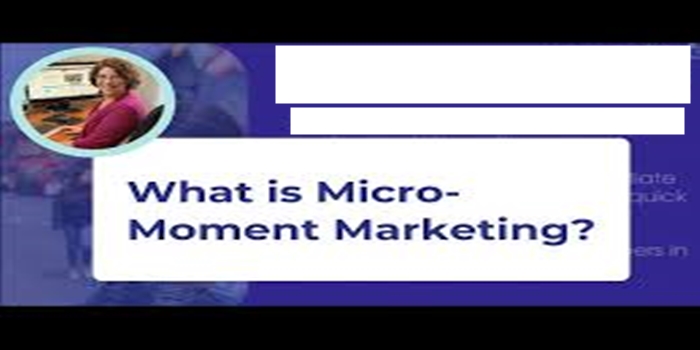In this article, we explained the meaning of micro-moments marketing, the features, the examples, and we also outlined the benefits.
Definition
Micro-moment marketing is a strategy that focuses on engaging consumers during brief, high-intent moments when they use their mobile devices to learn, do, go, or buy. These “micro-moments” are quick interactions where people need immediate answers and are more likely to make a decision or purchase.
The Features of Micro-Moment Marketing:
- Intent-Rich Moments: Micro-moments are characterized by a consumer’s strong desire to fulfill an immediate need, such as finding information, completing a task, or making a purchase.
- High Intent: Consumers are actively engaged and ready to make a decision or take action during these moments.
- Mobile-First: Micro-moments often occur on mobile devices, as consumers increasingly rely on their smartphones for information, research, and transactions.
- Four Key Types: Micro-moments can be broadly categorized into four types:
I-want-to-know: Seeking information or answers to questions.
I-want-to-go: Looking for directions or local businesses.
I-want-to-do: Needing guidance or instructions to complete a task.
I-want-to-buy: Ready to make a purchase decision.
- Quick and Relevant: Consumers expect immediate and relevant information during micro-moments, and marketers must be prepared to deliver it.
- Seamless Experience: The goal is to create a smooth and user-friendly experience that allows consumers to easily find what they need and move toward their desired action.
- Competitive Advantage: Brands that effectively capitalize on micro-moments gain a competitive advantage by meeting consumer needs at the most opportune time.
- Importance of Mobile Optimization: Micro-moment marketing requires a strong focus on mobile optimization, as many of these moments occur on smartphones.
Examples of Micro-Moment Marketing:
I want to go: A user searching “coffee shops near me”.
I want to do: Someone looking up “how to bake a chocolate cake” on YouTube.
I want to buy: A shopper searching for “best wireless earbuds under $100”.
Real-time ride-hailing: Uber connects riders with drivers based on location.
Personalized beauty tips: Sephora provides beauty tips and tutorials based on user preferences.
Location-based promotions: Sephora uses location-based push notifications to guide users to nearby stores.
Hyper-personalized recommendations: Airbnb uses hyper-personalized recommendations based on past searches.
Mobile app ordering and rewards: Tim Hortons capitalizes on real-time needs with mobile app ordering and rewards.
Product recommendations: Amazon suggests products based on browsing and purchase history.
Micro-motion marketing: Netflix uses short videos to promote new shows during commercial breaks.
Leveraging news events: Brands can use current events to promote their products or services, like a sports-themed ad.
Anticipating needs: Brands can use location data to offer relevant promotions, like a coffee shop offering a discount for nearby users.
Providing quick answers: Brands can provide quick answers to frequently asked questions or solve problems through their websites or social media.
Benefits of Micro-Moment Marketing:
Real-time Engagement:
Businesses can reach customers at the precise moment they are looking for information or making a decision, allowing for timely and relevant content delivery.
Personalized Experiences:
Understanding the context of each micro-moment allows for tailoring content to specific needs, enhancing the user experience and fostering stronger connections.
Competitive Advantage:
By being present and helpful during decision-making moments, businesses can gain a competitive advantage by being proactive and providing valuable solutions.
Brand Visibility:
Consistent presence in relevant searches and interactions builds brand awareness and authority over time, establishing the business as a trusted source of information.
Increased Engagement and Loyalty:
Micro-moment marketing can lead to improved engagement and customer loyalty by delivering relevant and timely content that meets specific needs.
Improved Customer Journey:
By addressing immediate needs and providing solutions during micro-moments, businesses can enhance the overall customer journey.
Greater ROI:
Micro-moment marketing can be more effective at reaching and engaging customers, leading to a higher return on investment for businesses.
Conclusion
Micro-moment marketing focuses on seizing opportunities to engage with consumers in key moments of their decision-making process. These moments are often triggered by a need to know, do, go, or buy, and are characterized by high intent and immediate needs. Marketers can capitalize on these fleeting but impactful moments by delivering quick, relevant information and creating a seamless path to action.


